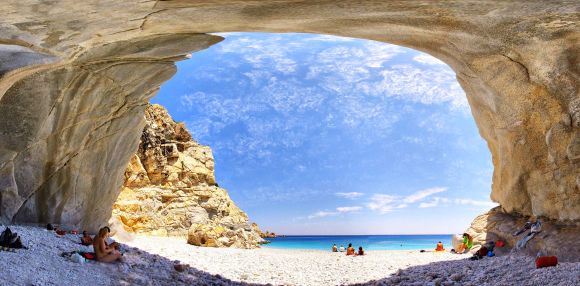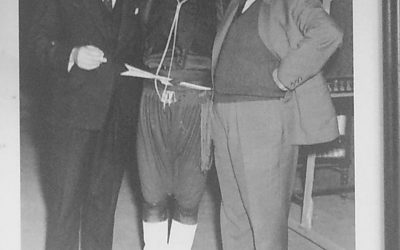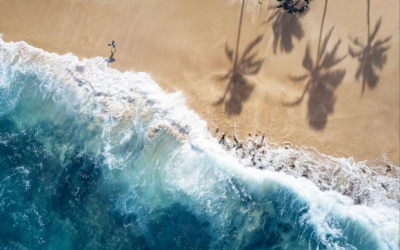Well is the new wealthy, says June Field
The travel industry is waking up to wellness, and pre COVID it was widely reported that we’re spending something like $252 billion globally a year. Health is suddenly more precious. We’re rethinking our lifestyles, and nature’s given us a nudge in the right direction.
The spotlight is suddenly on a mythical Greek island in the north east Aegean which I first visited over a decade ago. I’d heard of its charms, and having secured a commission from The Guardian Travel Editor, I hopped on a ferry from Athens to the port of Evdilos.
It’s unlike any other of the dozens of Aegean islands I’ve visited and lives up the ‘red rock’ reputation. Greek island life is laid back but Ikaria is vertical. Good thing I’d not made plans for the week. Boy, what an adventure it was.
The island is synonymous with a super charged healthy population, many living active lives into their 90s and 100s. A combination of geography, history and location, the Ikariots have created the perfect recipe for long life. It’s compared to longevity hotspots like Okinawa in Japan. In short, a modern day fountain of youth.
Why do people on Ikaria live a decade longer than other westerners? Ninety-year-olds are active there – they walk for hours each day, harvest their own food and take part in strenuous sports like rowing competitions. Even the rest of Greece see Ikariotes are an accentric crowd, in a lovable kind of way. They are known for having their own attitudes to time and space (no one keeps a schedule, they arrive when the mood strikes) and above all have a strong sense of freedom.
You can see this everywhere. Greece threw off the shackles of Ottoman rule in 1912 and still proudly display their cobalt blue and white cross flag over many homes.
The fact that the island is not easy to reach (long ferry rides) and has some of the most hazardous roads in the world (drive from the airport to Nas and you’ll see) has lured the arty crowd. Bohemians and holistics have colonised Ikaria, with small centres operating great meditation and mindfulness courses on the south coast.
The beaches are heavenly – from the rugged Nas in the north west close to the temple of Artemis, to the eye popping ‘Seychelles’ in the south. You’d think it risky to name a beach after the Indian Ocean paradise but this beach is spectacular. Everything is dramatic – from the approach down a cliff, scrambling over the iconic boulder rocks, across a white beach into bright turquoise blue surf. Flanked by small sea caves, it doesn’t get any more romantic than this.
I can’t leave out the history. .You may have guessed, it’s named after Ikarus. You’ve all heard the Greek myth about young Ikarus, who flew too close to the sun and plummeted to his death with his wax wings melting, while his father Daedalus unable to save him.
The other secret? I knew from living in Athens and countless visits to islands like Kos that our earliest healers Hippocrates, Asclepius and Aristotle came from this corner of Europe.
But seven natural hot springs on one island? Amazingly, Ikaria’s mineral rich hyperthermal salt water springs have been the go-to place for cures since antiquity. Just one of the health benefits to bathing in the Ikarian sea springs is the high amounts of radon (the highest in the world) – which act on the lungs and respiratory system.
The ruins of the ancient bath town of Therma are there to prove it. Meanwhile, near Therma some ruins of the ancient city can be explored underwater.
Finally I discovered that Ikaria is also known for its “immortal water,” a cold spring near the village of Xylosyrtis that is thought to be beneficial for treating kidney ailments.
No wonder they are living so long.





Leave a Comment